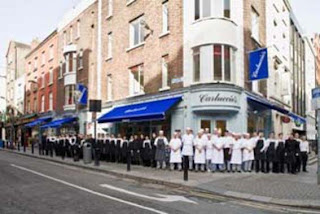 |
| Bano Rashid, 18, was a Kurdish immigrant from Iraq who was among the recent victims. |
"Today it is one week since Norway was hit by evil," Mr. Stoltenberg said from a stage covered with red roses at the memorial service in Oslo. "We are not going to be shocked and intimidated into silence," he added." The bravery that these young people have shown is catching. We're going to answer hatred with love. We're going to honour our heroes forever."
Later, Mr. Stoltenberg visited a mosque to stress national unity.
Norway is the front line of one of the most important battles of our times. All that they had was attacked by the madness of hate and their reaction is of vital interest to all of humanity.
For years we have watched reactions of vengeance and revenge; hitting back to settle the score like some hideous game. But each reaction has done little more than inspire further retaliations – a downward spiral of death and destruction usually visited on those who are but bystanders: women and children and the old.
Each of these reactions has been sanctified by distortions of Faiths but in the end they remain nothing but the betrayal of all that spirituality has tried to teach us. They are proof that many of us are still the savage beasts that we claim to have evolved past.
We need Norway to succeed; we need proof that we can overcome hatred and not be eternally enslaved by it.
















